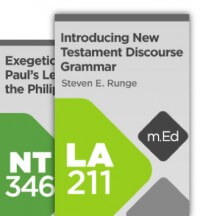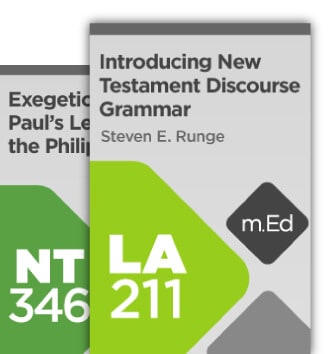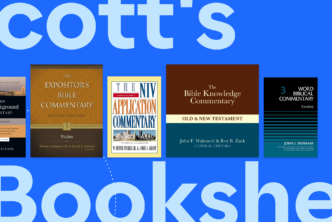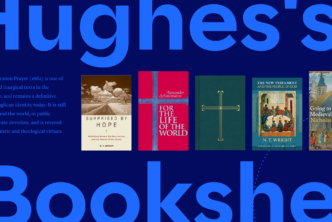The Greek text has much to offer those teaching and preaching, but gleaning these insights can be a frustrating experience. Too often, people expect that word studies or assigning a syntactic label to a construction is as good as it gets. But the new Discourse Analysis Bundle from Mobile Ed opens the door for those with an introductory knowledge of Greek to go deeper than they ever thought possible. In these courses, you’ll be introduced to significant discourse devices that the biblical writers used to prioritize and structure their message. You’ll learn how things like forward-pointing devices were used to help the original audience know that something important was about to be said.
Understanding these discourse devices serves as a foundation for moving on to higher-level analysis of a book’s message and structure. Identifying the markers used for signaling boundaries will better equip you to organize your expository preaching and teaching. And far from offering you just theory, this bundle of courses moves from foundational overview to detailed application of the principles to an exposition of Paul’s letter to the Philippians. The course offer a practical introduction and application of cutting-edge research from modern linguistics and discourse analysis.
Best of all these courses are designed as part of a larger suite of discourse-based materials that apply the principles to the entire Greek New Testament. The Lexham Discourse Greek New Testament brings the insights of discourse analysis to bear on every verse of the Greek New Testament, giving you instant access to rich discourse data absent from most commentaries and grammars.
Moving beyond translation

The videos and screen casts in the Discourse Analysis Bundle will move you closer to understanding Greek on its own terms instead of just through translation. You’ll understand not just what the devices are, but why the New Testament writers used them and what discourse functions they accomplish.
Learn more about the Discourse Analysis Bundle from Mobile Ed.





